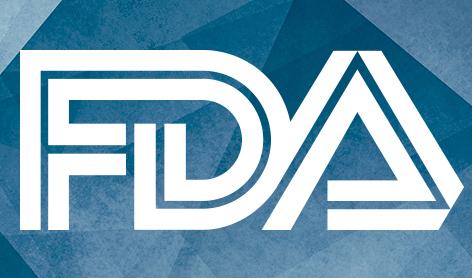Article
Levoketoconazole (Recorlev) Receives FDA Approval for Endogenous Cushing's Syndrome
Author(s):
Announced on December 30, the approval of levoketoconazole (Recorlev), a cortisol synthesis inhibitor, is for the treatment of endogenous hypercortisolemia in adult patients with Cushing’s syndrome for whom surgery is not an option or has not been curative.

The US Food and Drug Administration (FDA) has approved levoketoconazole (Recorlev) for the treatment of endogenous hypercortisolemia in adult patients with Cushing’s syndrome for whom surgery is not an option or has not been curative, according to a release from Xeris Biopharma.
Announced on December 30, 2021, Xeris Biopharma plans for a commercial launch of the cortisol synthesis inhibitor sometime during Q1 2022.
“Levoketoconazole (Recorlev) is an important and welcome new therapeutic option for clinicians to help manage patients with endogenous Cushing's syndrome, a severe, potentially life-threatening rare disease, if not appropriately treated, with multisystem signs and symptoms,” said Maria Fleseriu, MD, FACE, professor of Medicine and Neurological Surgery and director of the Pituitary Center at Oregon Health Sciences University. “In prospective clinical studies, treatment with levoketoconazole was shown to be effective for reducing and normalizing cortisol.”
The approval of levoketoconazole is based on a pair of phase 3 studies demonstrating the ability of the agent to significantly reduce and normalize mean urine free cortisol. The studies, named SONICS and LOGICS, examined the safety and efficacy of levoketoconazole in a population of 166 patients deemed representative of the adult drug-treated US population with Cushing’s syndrome.
SONICS, which was an open-label, single-arm trial, achieved its prespecified primary end point, with 30% of patients using levoketoconazole achieving normalization of mean urinary free cortisol following 6 months of maintenance treatment without a dose increase. In LOGICS, which was a double-blind, placebo-controlled randomized-withdrawal study, results confirmed the safety and efficacy findings from SONICS, with results indicating significantly more patients on placebo achieving the primary endpoint of loss of mUFC response.
“We are thrilled with the FDA's approval of Recorlev as a safe and effective treatment option for patients with endogenous Cushing's syndrome. With this approval, Xeris’ experienced endocrinology-focused commercial organization can begin rapidly working to help address the needs of Cushing’s syndrome patients in the U.S. who are treated with prescription therapy,” said Paul R. Edick, Chairman and CEO of Xeris Biopharma, in the aforementioned release.





